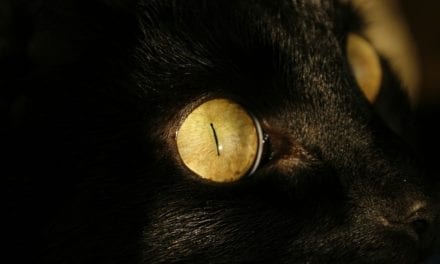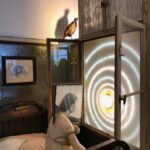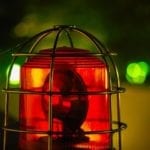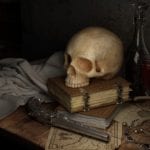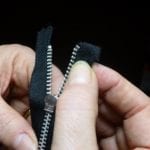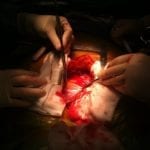Annie woke up screaming this morning and it was her screaming that woke me up. I had been dreaming. In my dream, there was an egg-shaped lump in my groin. It was tender and hard under the skin. Annie was shivering, her body covered in sweat. I checked my groin and there was no lump.
I think that Annie has been replaced. I don’t know who would have done this or why. I’ve been trying to figure out exactly when they might have made the switch. I’ve thought it through and I can think of several possible opportunities. The most likely is one night about two months ago when I went out alone to the movies. I went to see an American comedy. I was homesick and I wanted to hear American voices. They could have replaced Annie then and, as I said, I’ve thought of several other opportunities. Or they could have done it at another time that I haven’t thought about at all. My Annie’s not the same girl now. That much I know.
She screamed and the scream brought her out of her nightmare and woke us both up. I lay there in the dark next to her while she shivered. Then she stopped shivering and I could hear her breathing become slow and regular as she fell back to sleep. I did not go back to sleep. It was early morning and soon the light came up outside. I got up and went into our kitchen. I made coffee. When the coffee was ready, I brought the cups back into the bedroom. Annie was sitting up in bed now and I handed her a cup and sat down facing her on the bed. We drank the coffee and we talked.
Annie didn’t remember anything about her dream, just the scream that had awakened us. Before the change, Annie always remembered every detail of her dreams. We would sit on the bed facing each other like this over coffee, sometimes for hours, while she told her dreams to me as if they had been actual events.
There was never an exact moment when I noticed the change. When I think about it now, it seems that one day she was there and then the next day it was all wrong. Once it was wrong, it might have been wrong for a very long time. Now I look at Annie and I feel like a soldier who knows that one of his men has betrayed him.
I think about soldiers a lot these days and about what it must have been like to live in a city like Paris during a war. I think that this business with Annie might be even worse, because, unlike a war, it’s a secret fight, but it seems to me that really it’s just more of the same.
Suppose that someone had mistaken me for another person. For someone important. A thing like that could happen. A powerful man would have enemies who could afford this sort of thing.
I wonder what they did with the body.
Annie has a job in the Seizieme, teaching the children of rich families English. In the evenings, she teaches an advanced adult class in an apartment near the Place des Vosages. It is good that she has the two jobs because I haven’t been able to find work since we came here.
Paris has never been a rock and roll town. You can go backward, find le Jazz Hot or the Cabaret music from before the War. You can listen to the Hip Hop that has been a radio mainstay since MC Solaar hit in the early 1980s. There’s bad Black Metal and even a wretched little indie scene, but there’s nothing vital. There never has been. There is something antithetical to the French sensibility in the rock and roll ethos, if there is such a thing. Maybe because rock and roll is about being young and lost and full of yearning, and being French is about being old and lost and wanting nothing.
This is why I moved here. To get away from rock and roll. I sold my guitars and brown tweed Fender Deluxe that I’d had for twenty years. It was the envy of every guitar player I knew and I’d used it on those last demo sessions before all of that fell through. With the amp and the guitars sold, we had enough for our tickets and rent for our first three months. I had expected to find work easily because it didn’t matter at all to me what I did. Of course, I had more trouble with the language than Annie did, but even after I had learned enough to get by, I wasn’t able to find anything. I thought about going back to the States, but it seemed so far away, and Annie was so happy here. She loved it in Paris. She loved what she called the feeling of trespassing in someone else’s world.
There is a joke about an American musician who comes to Paris. It’s a very sad joke. A tenor saxophone player, Tony something, gigged around New York forever, couldn’t get anything going. Guy was really gifted, but the shit he was playing was too outside for the labels, the club owners, whatever. So his friends chip in, buy him a ticket to Paris, a city of Jazz hopes and dreams. He gets this beautiful apartment, view of the river, the whole deal; he can’t make it happen there either. Can’t find the gigs, the guys to play with, nothing. This is not the city of Bud Powell, Dexter Gordon. This is a big, modern city with a cold heart. Finally, fuck it, he’s going to kill himself, jump right out the window of his apartment.
He goes to the window. It’s been raining and there’s this rainbow over the river. And he thinks, “One last tune.” Gets his horn, starts to play “Somewhere Over the Rainbow.” Not outside at all. Sticking to the melody. He’s playing clear and clean and beautiful, but when he gets to the verse, he can’t remember how it goes. “Perfect.” He thinks, “I’ll just go back to the beginning, play my way up to it. If I get to the verse again and I still can’t find it, out I go.” He starts again.
By now, a crowd has gathered. This time, he does take the tune out a little, and the crowd goes with him, digging it. After all these years, he’s finally got an audience. He gets to the verse, still can’t remember it. “One more from the top and that’s it.” Now he’s wailing, the frustration’s there, the pain, the beauty. The crowd is getting bigger. People are moved. They’re running to get their friends. There’s an agent on vacation, calling back to New York, get him booked into the Village Vanguard or some shit. He takes it up to the verse, you know, the “someday I’ll wish upon a star” part, and nothing. Story of his fucking life. That’s it. He throws the horn out the window, watches it fall. Then he joins it, throws himself right out the window.
Now he’s lying, stretched out on the pavement, every bone in his body broken, and he hears the ambulance coming to get him.
When you tell the joke, because this is really a joke that should be told out loud, you make that two-note phrase that French ambulances make. The same two notes as the verse of “Somewhere Over the Rainbow.” The, “Someday I’ll wish upon a star” part. “Da da da da da da da da.”
I used to think about that joke a lot when we first got here. I would find myself on a street, humming that “da da.” But I didn’t have any friends but Annie; there wasn’t anyone to chip in and try to save me from myself, I hadn’t brought my guitar; I’d sold it, and Paris may have been a jazz town, but it was not, as I said, a city for rock and roll.
~~~OOO~~~
I generally spent my mornings in one of the smaller cafes around St. Germain. It didn’t matter which. I didn’t like the weekends, when the British and American tourists came and crowded the streets to watch a juggler or a fire-eater or a gypsy selling wind-up toys. On the weekends, I would go somewhere else.
This morning after Annie had gone to work, I walked across the river towards St. Germain and I thought about the happy walks Annie and I had taken in the city and about our plans. We had come to Paris to be in love. No one should be cheated of that. Whoever made this terrible mistake should know that.
I thought about Annie and about the way it had felt to get into bed with her on a cold night those first homesick months here. To nestle against her warming skin.
Annie made our life here. There is no other way to see it. She learned to speak French and she found a job and then a second job. She found a better apartment than the one we’d found together when we first arrived. Life was matter of fact to Annie. She was never afraid. She held on to nothing. Nothing was ever a problem.
If they came while I was at the movies, did they bring some sort of machine with them? What do they have? Machines we can’t even imagine. Or something small, something you can hold in the palm of your hand. It could be a device like that, a device that works to change a person’s atoms, or the sub-atomic particles themselves. It might be something that happens all at once, a replacement, as I said before, or it might be something slower, something like a virus. But I don’t think it’s like that at all. Nothing slow or gradual. Not a “becoming” or a biological mutation. I believe that Annie was replaced.
Maybe they got to her while she was at work, or it could have been on her way to her evening job. Not knowing what it is they’ve done, or how they went about doing it, I can picture almost anything happening and I can make myself believe it.
Of course, I have pretended not to notice the change. I try to act as if nothing is wrong. For a while, I even found the idea of making love to a stranger exciting and I tried new and exotic techniques.
But I think that Annie suspects. A distance has grown between us. Sometimes now she hurries to work in the mornings without waking me. I lie in bed, hearing her, pretending to sleep. To me, it sounds as if she is escaping.
Once I know that she is gone, I get up, get dressed and go out. I generally follow the river to the Pont Neuf and then cross, coming up on the Rue Dauphin and walking up to St. Germain. This morning, although I don’t know why, I decided not to cross the river at all. I walked instead towards a cafe in the Marais, not far from our apartment.
On the Rue des Blancs Manteaux, I saw two people kill a cat. They were teenagers, a boy and a girl, dressed in baggy red sweaters and torn jeans. The girl’s hair was straight and parted so that it fell over into her face. The boy’s hair was nearly the same. They held the cat by its legs and pulled it apart there on the street.
The cat screamed and the scream seemed to continue after it was dead. The two teenagers were covered in blood and they laughed, rubbing the blood along each other’s bodies as if they were playing somewhere in the mud. It was still early in the morning and there was no one else on the street but an old woman who turned to look at the two young people and then kept walking, keeping her eyes on the sidewalk where he next step would fall.
I was standing across the street and a bit away. I felt an ache above my groin, where the lump had been in my dream. I yelled over at the teenagers to stop. They looked over and laughed again, then they dropped the pieces of the cat and they began to run.
I had to wait for several cars to pass before I could cross the street and follow. I wanted to catch the two of them very badly, although I had no idea what I would do once I caught them. I supposed that I would hit them. It seemed to me that I might keep hitting them for a long time once I’d started. I was vaguely aware that I would have trouble explaining, in my bad French, why I was beating up two teenagers on a street corner. “Ils ont tue un chat, Ils ont tue un chat,” I kept practicing to myself as I followed them.
As I crossed the street after them, I stepped in the gory pieces of the cat. My shoes stuck in the blood. Ahead of me at the corner, the two stood, laughing, daring me to follow.
When we had moved to our second apartment, the one Annie had found, she’d wanted to get a cat. I told her that I hated cats, which was not true at all. I was never sure why I hadn’t wanted Annie to have a cat.
Up ahead, I caught a glimpse of red sweater as the teenagers ducked into the Metro.
I followed, bought a ticket, and went through the turnstile. I couldn’t see them, but I could hear their laughter. I followed the sound and reached the platform just as a train came. I saw them getting into the car ahead of me. I stepped onto the next car and stood by the door. I was sweating and trembling and the ache from the lump above my groin was very painful.
At every stop I got off and stood on the platform, watching for the flash of red from their sweaters that would mean that they too had gotten off the Metro.
At the Arts et Metiers stop they did get off and I followed them through the network of Metro tunnels to another platform and another car. They got on and I got on the car behind them. Then it was the same. I would get off at every stop and watch.
Finally, at the Pere Lachaise stop, they got off. I saw them look back at me, and I was positive that they were checking to make sure that I was still following. They caught my eye, then they raised their blood-covered arms and laughed again. They disappeared out an exit. I had to push through a crowd to follow and when I came up out of the Metro, I couldn’t see them at all.
I was in a section of Paris where I had never been. My sense of direction was confused, coming up from underground without a familiar landmark. I turned around slowly, looking for a glimpse of red. I began to wonder if I should give up the chase, take the metro to St. Germain, and have my coffee as I usually did.
The wall of the Pere Lachaise cemetery rose up on the hill across the street from where I stood. In among the graves I saw the red sweater moving and above the sounds of traffic I could hear the awful laughter of those two teenagers. I ran across the street and up the steps that led into the cemetery.
There was an old, uniformed guard by the entrance. He reminded me so much of our landlord, the man from whom Annie had let our second apartment, that I must have stared at him rudely. He had a stack of printed sheets at his feet and next to the stack was a plate on which there were several coins. He reached down and handed me one of the sheets.
“Vous avez vu deux adolescents avec les bras sanglants?” I asked waving away the sheet, which appeared to be a map to the graves, at the same time.
He looked at me with a dull, indifferent smile. It was a face I had seen our landlord make on more than one occasion. “Non, monsieur,” he said.
I hurried past him and went up among the graves. Stones and tombs litter the hill of Pere Lachaise in an untidy array so that there seemed to be no scheme or order to the burial sites. I followed a brick path that led, I believed, in the direction in which I had last seen the red. The path led up a hill and at the top, finding nothing, I stopped.
It was late winter and the trees here were still bare of any leaves. Large black and white birds screeched in the empty branches and flapped their wings without flying. The day was overcast with the steel grey shine a Paris sky can sometimes get on a winter day. It is a shine that can be almost blinding.
I heard laughter behind me and I turned. I was out of breath now from hurrying up the hill. I moved along another path, following the laughter.
There were very few people in the cemetery. Several young men loitered in various corners, looking up casually as I passed and then looking back down when I didn’t stop beside them.
I passed a group of Japanese men in pinstriped suits. All held iPhones. They were taking turns taking each other’s picture in front of two raised concrete caskets and a monument: the graves of La Fontaine and Moliere. The monument was familiar to me, although I had never been in the cemetery. Annie had described it to me. One morning sitting across from her on the bed drinking coffee, she had told me about one of her dreams. This monument had been in the dream.
I walked the winding paths of the cemetery for what seemed like hours, following the laughter and the occasional glimpses of red. Everything that I passed was familiar, something out of one of Annie’s dreams. At times, the incident with the cat in the Rue de Blancs Manteaux seemed to fade until it too might have been a dream, but there were many cats living in the cemetery and, as I passed them sunning themselves or preening, they would turn to look at me and they would glare, as if I had been the one who had torn that other cat apart.
Then I remembered another of Annie’s dreams. In it, she had had a lump, like the one that was still throbbing above my groin. The lump was in her left breast, and she had suspected a cancer. But when she felt at the lump, it came open in her hands, and an army of red ants began to issue forth, stinging her viciously as they came out from inside of her. The memory of Annie’s dream scared me and, finding a private corner of the cemetery, I pulled down my pants and looked. There was nothing there, no lump at all, just a reddish patch that might have come from some unconscious scratching. Still, I could not shake the feeling now of something small and unfriendly crawling across my body.
I hadn’t had a glimpse of red or heard any laughter in a long time when, on one of the cemetery’s hills, I came on a fat man who was taking a photograph. I stopped so that I wouldn’t get in the way of his picture. He looked up at me. He was holding one of the guard’s maps to the cemetery. “Piaf?” he asked, pointing at the map.
I could hear that he was American. “I don’t know,” I said, answering in English. “Moliere and La Fontaine are somewhere over there.”
I had been silent for a long time with the ringing of silence in my ears, and my voice sounded flat and metallic, like something being played back on an old cassette tape.
“I’ve spent hours looking for Edith Piaf,” he said. His voice was southern and effeminate. “Oscar Wilde is right up there on the main drag, no pun intended. You should see what they’ve done to him. They always write in English, have you noticed that? ‘To Oscar, with love’, scratched into the stone of his monument, and someone wrote ‘Bury me in all my favorite colors.’
It was a quote from a My Chemical Romance song, but I didn’t think that would matter to him. I heard the laughter off in the distance and I looked at the man to see if he had heard anything. His face showed nothing.
“It’s like Dachau,” he said. “I was there last week. In the ovens, people have crawled inside and written their names. But that’s not just English. They’ve got every language in the world. Russian, Spanish, written their names in the ovens and on the walls of the gas chambers if you can believe that people would do that.”
Up past him, disappearing among the graves, I saw them then, the boy and the girl. The boy looked back at me and caught my eye. His smile was cold and the laugh that followed it came from somewhere far away and dark.
“I have to go,” I said to the fat man, and hurried off after them. I was very afraid, and not at all sure that I wanted to catch up with the young murderers.
“I didn’t mean to offend you,” the fat man shouted, his voice pleading for me to come back. “I was just making an observation. I was thinking about the need that people seem to have to desecrate.”
I was already moving up among the graves. The chase grew quicker. The flashes of red and the laughter were with me all the time now. The glare of the sky seemed to have grown even brighter until it was as if the whole day were made out of metal. A thought came to me and stayed. I scared myself with it the way a little boy scares himself in a dark room until soon he is too frightened and cries for his mother to come and turn on the lights. It was the thought that the two people I was chasing might somehow be connected with what had happened to Annie. I began to think that they might even be the ones who had done the actual replacement.
I was passing an open space on the hill, following the laughter back among the graves. Ahead of me on a tomb were spray-painted the name “Jim” and an arrow pointing in. “6th grave” was written above the arrow. On another grave, someone had written “Twentieth Century Fox,” also in spray-paint.
Three people dressed in tie-dyed shirts and purple jeans were standing in the middle of the plot of graves. Two young men and a woman. They looked like hippies time-warped out of a San Francisco love-in. They were staring at a small, unmarked mound. They spoke quietly in German. The woman held a flower in her hand. She seemed to be looking for somewhere to set it. Two other girls came walking up from behind me. They spoke and I could hear that they were Americans.
“Just a lump of dirt, no marker or anything.”
“I’ve seen a poster with a picture of a marker.”
“Maybe someone stole it or something.”
The German hippie girl stuck her flower gently into the mound of dirt at her feet.
“I was never really into the Doors,” the first American girl was saying. “I mean, they were like my father’s favorite band. But I guess he was really cute.”
“I think it’s really neat that he was buried here with all these famous artists and stuff,” her friend said, “but my friend Jeffrey says he’s not really dead.”
“He’d be like seventy or something.”
“Still. Maybe that’s why he doesn’t get a marker or anything.”
Her friend was looking past her now. She seemed to be staring right at me. “Or maybe they just took his marker away because they don’t think he really belongs here,” she said. “Maybe it makes them angry or something.”
I had turned to watch these girls and now I felt something cold on my shoulder. I looked and there was a hand resting there. The hand was covered in dried blood. I was face to face with the teenage girl in the red sweater. She smiled and there was something ancient and carnal in that smile that made me ache in a way I had never felt before. I closed my eyes. I felt the girl’s hand caress my shoulder, moving down from there slowly, moving towards the place above my groin where I had looked to find the lump from my dream.
I waited, my eyes closed, for this strange girl to finish her caress. I felt that something awful might happen, but in that moment, I didn’t care. There was a slight breeze. I opened my eyes.
The boy and girl were moving away up the hill from me. They were skipping. Holding hands.
I followed them and we went into a section of the cemetery now where the tombs were very cluttered. The couple stopped in front of a tomb, waiting for me.
I stopped too. For a long moment, none of us moved. They started to laugh again. I had to make that laughter stop. I started towards them. They went inside the tomb. I followed. The distance was a bit further than I’d thought, but I sprinted to the entrance of the tomb into which they had disappeared.
I stood there staring into a cool darkness that didn’t glow like the day outside. The little room was empty. Two wicker chairs sat, rotting into decay in front of a dirty altar. They were rocking chairs and they might have been moving, just slightly. On the altar were some objects that looked like carpenter’s tools, or tools that might have been used in some kind of metal work. Air came out cold and musty and, although I felt drawn to go inside, I did not step into the tomb.
I went back down the hill quickly. I walked past the German hippies. The boys sat on the unmarked mound of Jim Morrison’s grave listening to Morrison Hotel on an iPhone, while the girl stood swaying to the nearly invisible music leaking from the phone’s small speaker.
The sky had lost its metal shine, and it began to rain. Above me in a naked tree, one of the large birds screeched. Apart from that screeching and the sounds of the rain and the faintest hint of music from the Germans’ iPhone, the day was quiet. There was no sound of laughter at all.
By the time I left the graveyard, I think I already knew what I would have to do. It was a long walk back to our apartment and it took me most of the afternoon. When I was finally home, I fell asleep.
~~~OOO~~~
I was still sleeping when Annie came home. I woke with a start when she came in, but I made myself lie still, pretending to sleep.
Annie went into the bathroom. I heard the water running. It stopped and she came back out.
I had the knife ready in my hand. I had fallen asleep with it under my pillow. As she pulled back the covers and climbed in next to me, I felt a moment of sadness, of nostalgia, in spite of all that I knew had happened. Her warmth and her smell had been duplicated that perfectly. I brought up the knife and drove it deep into her.
There was a scraping sound of metal against metal. Her mouth began to move and strange noises came from her throat. Voices. Annie’s voice. Too slow. Too fast. Digital stuttering. Her eyes opened and shut. Electrical static. Digital squeaks. Then she had stopped. I had broken her.
~~~OOO~~~
It has taken me nearly two hours to clean up the mess. I’ve put all the parts into a large plastic bag. There was nothing sub-atomic, nothing more complicated than a simple replacement, just as I had thought. But she was incredibly well made, I have to say that. The soldering alone must have taken days.
I don’t want to throw the bag into the river. I might be seen by somebody and questions would be raised. I know a quiet square just off the Pont Neuf on the Isle de la Cite where there is a little park. I’ll go there in the morning just before the men come to take the garbage. If someone sees me, I will just be leaving my trash.
Maybe I’ll keep the chip with Annie’s voice on it. It’s completely mangled and it could never be played, but I think it might make a nice memento. But maybe it would be better to throw that away with the rest. To forget this whole awful mistake, if it really was just that, a mistake. Maybe it’s time to go home.



